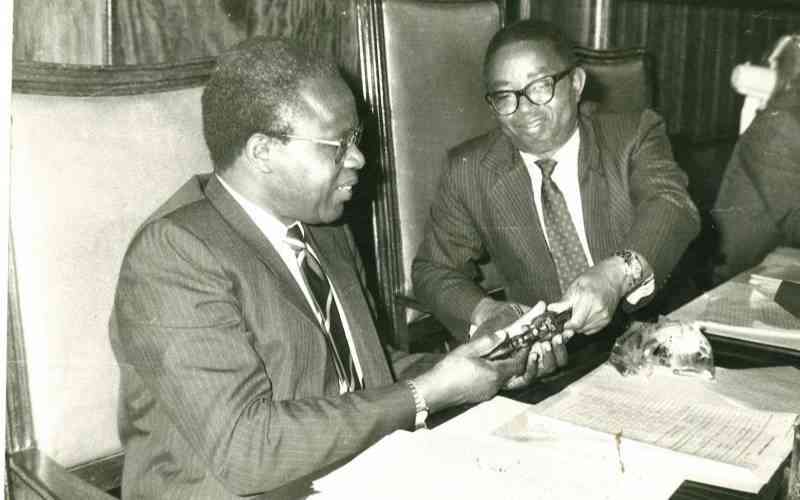×
The Standard e-Paper
Home To Bold Columnists

Justice Kwach and Ouko Inquiry Commission Chairman Evans Gicheru (right) examine the late Ouko's pistol. [File, Standard]
When a herdsman, Paul Shikuku, spotted some smoke billowing near a thicket at around 10.30 am on February 16, 1990, he had no idea his discovery would trigger reactions that would lead to deaths and his own disappearance.